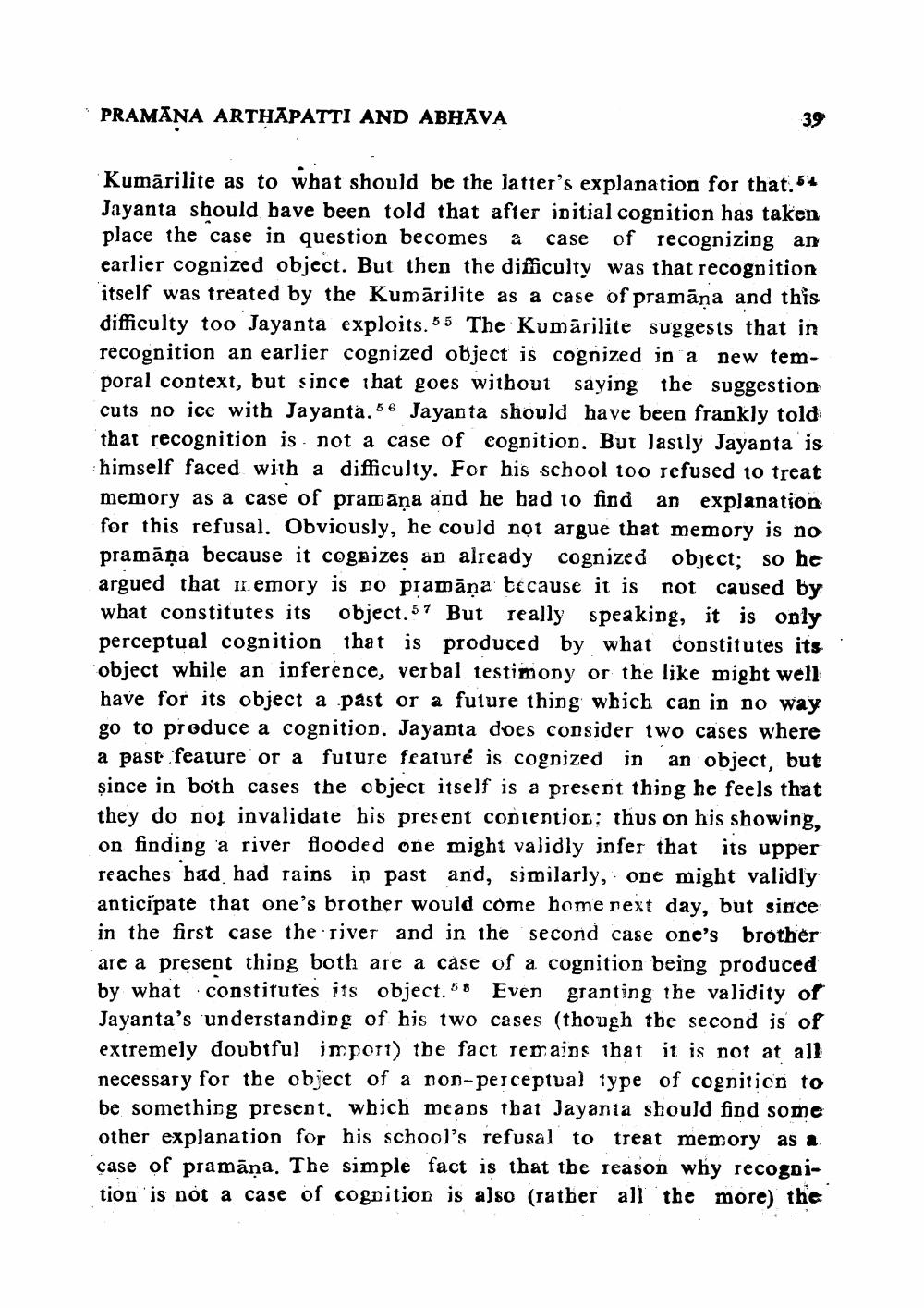________________
· PRAMĀNA ARTHAPATTI AND ABHAVA
Kumārilite as to what should be the latter's explanation for that. 54 Jayanta should bave been told that after initial cognition has taken place the case in question becomes a case of recognizing an earlier cognized object. But then the difficulty was that recognition itself was treated by the Kumārilite as a case of pramāna and this difficulty too Jayanta exploits. 55 The Kumārilite suggests that in recognition an earlier cognized object is cognized in a new temporal context, but since that goes without saying the suggestion cuts no ice with Jayanta.5 6 Jayan ta should have been frankly told that recognition is not a case of cognition. But Jastly Jayanta is himself faced with a difficulty. For his school too refused to treat memory as a case of pramāṇa and he had to find an explanation for this refusal. Obviously, he could not argue that memory is no pramāņa because it cognizes an already cognized object; so he argued that remory is ro pramāņa because it is not caused by what constitutes its object. 57 But really speaking, it is only perceptual cognition that is produced by what constitutes its object while an inference, verbal testimony or the like might well have for its object a past or a future thing which can in no way go to produce a cognition. Jayanta does consider two cases where a past feature or a future feature is cognized in an object, but since in both cases the object itself is a present thing he feels that they do noj invalidate his present contention; thus on his showing, on finding a river flooded one might validly infer that its upper reaches bad had rains in past and, similarly, one might validly anticipate that one's brother would come home next day, but since in the first case the river and in the second case one's brother are a present thing both are a case of a cognition being produced by what constitutes its object. 58 Even granting the validity of Jayanta's understanding of his two cases (though the second is of extremely doubtful import) the fact remains that it is not at all necessary for the object of a non-perceptual type of cognition to be something present, which means that Jayanta should find some other explanation for his school's refusal to treat memory as a case of pramāna. The simple fact is that the reason why recognition is not a case of cognition is also (rather all the mo




